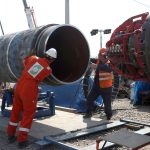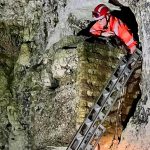The first paramedic to arrive at the scene of the Manchester Arena bombing has described the management of emergency services as “a bit like headless chickens”.
Patrick Ennis told the official inquiry into the handling of the incident it was 43 minutes after the explosion that two more “hazardous response” paramedics entered the City Room foyer where the bomb had gone off.
Bomber Salman Abedi killed 22 men, women and children when he blew himself up in the suicide attack at the end of an Ariana Grande concert in May 2017.
Mr Ennis told the inquiry he should not have even gone into the area of the bombing according to the “first on scene” action cards for a major incident.
But police officers on the ground urged him to go up to the City Room and he followed one of them, arriving at 10.52pm, 10 minutes after getting to the scene and 21 minutes after the explosion.
Inside, members of the public, police officers and first aiders were tending to the victims and Mr Ennis told the inquiry: “The level of information I had been given didn’t prepare me for the scale of the incident, it didn’t prepare me for the City Room, what a large scale and awful incident it was.”
Sir John Saunders, the chairman of the inquiry, asked: “A bomb had gone off as a lot of people were leaving a concert, obviously a horrific scene, why did you not consider that was a possibility, or was it so horrific you could not contemplate it?”
Mr Ennis said: “I considered the possibility there could be a large number of more injured people but until I saw it I had not been able to visualise it.
“One of the things that became very apparent was the age of those that were injured. I hadn’t prepared myself for that.”
The paramedic made a brief “sweep” of the room and left two minutes later, sending a message at 10.54pm saying: “This is confirmed major incident. We’ve got at least 40 casualties.”
Mr Ennis had been on a nightshift at Manchester central ambulance service when he saw a number of “amber” 999 calls coming through to the ambulance service control room from the arena.
Although the call was low priority, the “code 7” indicated there had been an explosion and Mr Ennis, who was an advanced paramedic, had a pager which alerted him.
He “self-deployed” to the scene and spoke to a paramedic colleague in the “trauma cell” at the emergency operations centre.
The colleague called him at 10.38pm, saying: “Hiya Paddie, just to give you the heads up there have been reports that a bomb has gone off at the MEN [arena].”
He replied: “OK I’m just going to follow the police to it. Can you check if anyone has spoken to silver [commander] it sounds like they are a bit like headless chickens up there at the minute.”
Police officers were already filling up the street outside Victoria Station which is underneath the arena when Mr Ennis arrived at 10.42pm.
He initially radioed in to say there were “walking wounded” and asked for four ambulances, warning his control there had been a nail bomb or gunshots and there might be a major incident.
In the message, at 10.46pm, Mr Ennis radioed: “We have no major incident command post, at least four emergency ambulances [required].
“It’s very chaotic.”
The paramedic told the inquiry: “It was my decision how many were required, I was the clinician on scene, it was down to emergency operations centre control manager to try and ensure those ambulances were located.”
Asked why he went into the City Room, he said: “It wasn’t to treat casualties, that wouldn’t have been appropriate at that stage, it was to gain situational awareness in order to pass that information back and potentially take one of the strategic roles, i.e. operational commander, until I was relieved of that role.”
Paul Greaney QC, for the inquiry, asked why it would have been inappropriate?
Mr Ennis added: “Because to be distracted, for want of better word, would have been to the detriment of the overall management of the greater number of casualties and overall management of a major incident.
“In order to take on the operational command role, it is necessary to be removed from the scene and not treat casualties at that stage.”
The hearing continues.






















